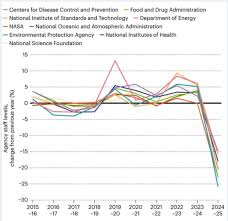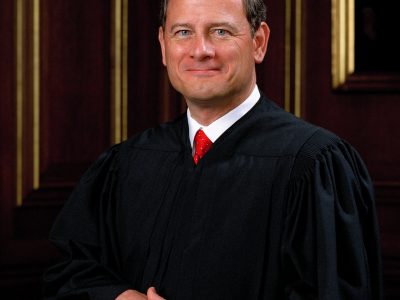The Forgotten Constitution
There’s a lot more than the “executive power” in there.
If you listen to the Trumpies, you might think that the Constitution was one sentence long, with that sentence vesting the executive power in the President. That’s the theory behind his efforts to remake the government – including environmental regulation – single-handedly. But there’s a lot more in there. Much of that forgotten language is directly relevant to the presidential actions that are now shaking the government, including environmental governance. Here are a few.
The Preamble. Admittedly, the Supreme Court tends to forget this initial paragraph in the Constitution. But the Preamble explains what the Framers thought they were doing and why. They already had “small government” under the Articles of Confederation. The Constitution was supposed to strengthen the government and give it the power to protect the public interest:
“We the People of the United States, in Order to form a more perfect Union, establish Justice, insure domestic Tranquility, provide for the common defence, promote the general Welfare, and secure the Blessings of Liberty to ourselves and our Posterity, do ordain and establish this Constitution for the United States of America.”
Don’t forget that part about the general welfare. If the Framers had wanted a minimalist state, they could have stuck with the Articles of Confederation.
Congressional powers. Article I begins with the statement that “All legislative Powers herein granted shall be vested in a Congress of the United States.” The President has no inherent power to make laws.
Trump acts like he has control of spending, but the Constitution gives that authority squarely to Congress, not the President. It is Congress that is given:
“Power To lay and collect Taxes, Duties, Imposts and Excises, to pay the Debts and provide for the common Defence and general Welfare of the United States”
Did the Framers hate regulations? No, they specifically gave regulatory power to Congress. Congress has the power:
“To regulate Commerce with foreign Nations, and among the several States, and with the Indian Tribe”
Finally, the Constitution gives Congress, not the President or the Supreme Court, the power to decide how to make the government work more effectively and efficiently. It says that Congress shall have the power:
“To make all Laws which shall be necessary and proper for carrying into Execution the foregoing Powers, and all other Powers vested by this Constitution in the Government of the United States, or in any Department or Officer thereof.”
Presidential powers. Trump said recently that he wasn’t sure if he had a duty to uphold the Constitution. He should consider these two provisions. When he took the oath of office (twice!), he took the Constitutional oath and swore that he would:
“…faithfully execute the Office of President of the United States, and will to the best of my Ability, preserve, protect and defend the Constitution of the United States.”
The Constitution also makes it clear that the President must carry out the laws passed by Congress. It says that the President:
“shall faithfully execute the Office of President of the United States, and will to the best of [his] Ability, preserve, protect and defend the Constitution of the United States,” and
“shall take Care that the Laws be faithfully executed.”
Finally, the President has the power to appoint officers, but it is Congress that decides what offices should exist, and how offices below the top level should be filled:
“He … shall nominate, and by and with the Advice and Consent of the Senate, shall appoint A[certain top officials] and all other Officers of the United States, whose Appointments are not herein otherwise provided for, and which shall be established by Law: but the Congress may by Law vest the Appointment of such inferior Officers, as they think proper, in the President alone, in the Courts of Law, or in the Heads of Departments.”
Thus, except for a few named in the Constitution, it is Congress that decides what “offices” exist and, for those not at the top level, how those will be filled.
The courts. Just as the Constitution vests the executive power in the President, it vests the final decisions about cases in the federal courts:
“The judicial Power of the United States, shall be vested in one supreme Court, and in such inferior Courts as the Congress may from time to time ordain and establish.”
That judicial power includes the final word on how federal law applies in any given case:
“The judicial Power shall extend to all Cases, in Law and Equity, arising under this Constitution, the Laws of the United States, and Treaties made, or which shall be made, under their Authority…”
Thus, compliance with judicial rulings is not optional: the courts, rather than the executive branch, is in charge of deciding cases and providing remedies.
The details would probably be unfamiliar, but the scheme of separated powers and checks and balances should be familiar to anyone who took high school civics (apparently a dwindling part of the population.) When Trump arrogates to himself the power to decide who should be paid and for what, or what federal offices should exist, or whether to obey court orders…. Well, all I can say is that the Constitution has something to say about that.
Reader Comments
3 Replies to “The Forgotten Constitution”
Comments are closed.







The denial of free speech is a serious constitutional violation. Individuals who believe their First Amendment rights have been violated can pursue legal action against the government or officials responsible. Potential consequences for violating constitutional rights can include civil lawsuits.
Why isn’t Legal Planet taking legal action for this violation by Washington politicians today.
Too bad politicians can deny our Freedom of Speech while intellectuals just silently watch our democracy being destroyed and your students wonder why bother spending incredible amounts of money on college when far too many can’t even get a job when they graduate.
Has The Administration taken action against Legal Planet yet to apply some form of censorship? If not, there might not be a way for LP to file a lawsuit. That doesn’t prevent supporting those who *are* attacked in some way, but direct action needs a direct attack first.